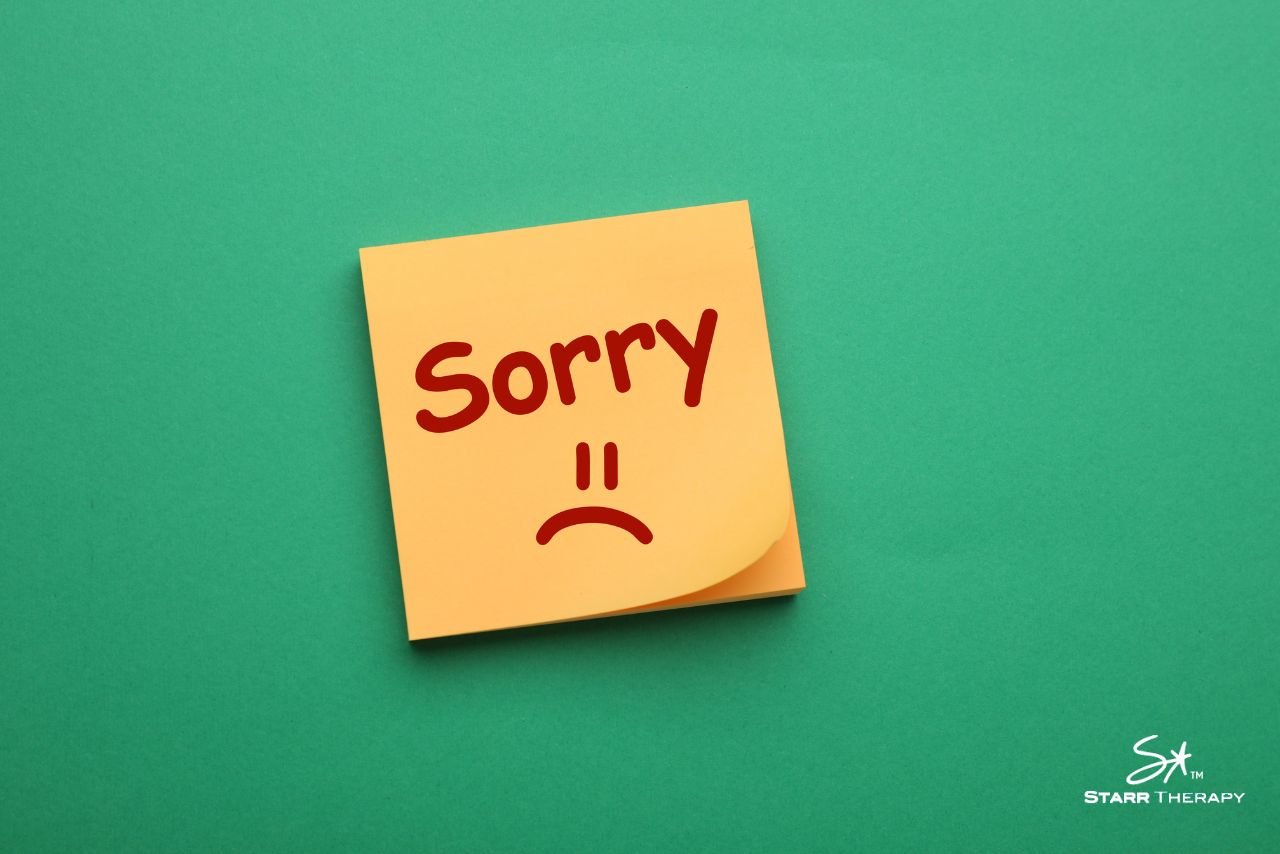
31 Jan How to Give and Receive a Proper Apology in Montclair, NJ: Essential Tips for Healthy Relationships
How to Give and Receive a Proper Apology in Montclair, NJ: Essential Tips for Healthy Relationships
Apologies play a crucial role in maintaining healthy personal and professional relationships. In Montclair, NJ, effective communication is key to ensuring apologies are sincere, responsible, and meaningful. A true apology not only acknowledges the harm but also fosters healing and growth. This guide outlines how to give and receive a proper apology, strengthening your relationships both at home and at work.
How to Give a Proper Apology
A meaningful apology goes beyond a simple “I’m sorry.” It requires acknowledging the harm, taking responsibility, and expressing a commitment to change. Here are five essential elements of an effective apology:
1. **Acknowledge What Happened**
Be specific about your actions. Instead of vague apologies, say:
• “I’m sorry for canceling our plans at the last minute without informing you.”
• “I regret raising my voice during our conversation yesterday.”
This shows the other person you understand the impact of your actions.
2. **Take Responsibility (No Excuses!)**
A sincere apology means no excuses or blaming the other person. Avoid:
• “I’m sorry if you felt hurt.”
• “I didn’t mean to upset you.”
Instead, own your behavior:
• “I was wrong to dismiss your concerns.”
• “I take full responsibility for what I said.”
3. **Express Genuine Regret**
A proper apology reflects true remorse. Acknowledge how your actions impacted the other person:
• “I realize my words were hurtful, and I regret making you feel that way.”
• “I now understand why that upset you, and I feel terrible about it.”
If you don’t feel regret:
It’s important to reflect on why you don’t feel regret. A lack of regret might indicate unresolved emotions or differences in perspectives. Consider whether the harm was unintentional or if you’re having difficulty empathizing with the other person’s feelings. If you don’t feel regret, try:
• Acknowledging the other person’s feelings without necessarily feeling guilt. You can still say: “I can see how my actions affected you, and I understand why you’re upset.”
• Explaining your perspective calmly and without deflecting responsibility: “I did not intend to hurt you, but I understand the impact of what happened.”
4. **Offer to Make Amends**
Sometimes, words aren’t enough. Ask how you can make things right:
• “I know I caused problems for you. How can I fix this?”
• “I want to regain your trust. What would help?”
Sometimes actions are the most meaningful way to show sincerity.
5. **Commit to Doing Better**
To truly repair the relationship, your behavior must change. Reassure the other person that you’re working on improving:
• “I’ve been reflecting, and I will be more mindful going forward.”
• “I’ll make sure to communicate better next time.”
Actions should follow these words over time.
How to Receive an Apology
Just as giving a proper apology is crucial, knowing how to receive one is essential for healing. Many people struggle with accepting apologies, either brushing them off or holding onto resentment. Here’s how to receive an apology in a way that fosters trust and healing:
1. **Listen with an Open Mind**
If someone is apologizing sincerely, listen without interrupting or assuming bad intentions. Allow them to express themselves fully.
2. **Acknowledge the Effort**
Even if the apology isn’t perfect, appreciate the effort:
• “I appreciate you taking responsibility for this.”
• “Thank you for apologizing. It means a lot.”
This helps keep the conversation open and honest.
3. **Express Your Feelings Honestly**
It’s okay to share how you feel. If you’re still hurt, say:
• “I hear your apology, but I need time to process this.”
• “I accept your apology, but rebuilding trust will take time.”
4. **Set Boundaries if Needed**
Forgiveness doesn’t always mean forgetting. If the issue was significant, set boundaries to protect yourself moving forward.
5. **Decide Whether to Forgive**
Forgiveness is a personal choice. If the apology is genuine and the person is making an effort to change, forgiveness can help move forward. However, if the behavior persists, it’s okay to reassess the relationship.
6. **If You’re Not Ready to Accept the Apology**
Sometimes, you may not be ready to accept an apology right away. It’s okay to need time. Here’s how to handle it:
• **Be Honest About Your Readiness**: You can say, “I appreciate your apology, but I’m not ready to forgive yet. I need more time to process this.”
• **Respect Your Boundaries**: If you’re not ready to move forward, it’s okay to take a step back. Set a timeframe for when you might be ready to discuss it further, or let the other person know what you need from them to reach a point of acceptance.
• **Take Time for Reflection**: Use the time to reflect on your feelings and decide what you truly need for healing. Sometimes, it’s important to prioritize your own emotional health before moving forward.
How Apologies Impact Mental Health
Giving and receiving apologies are crucial for emotional well-being. When done properly, apologies can significantly reduce stress, anxiety, and resentment in relationships, leading to better mental health for all parties involved.
1. **Reducing Emotional Burden**: Apologizing helps release feelings of guilt, shame, and anger, which can otherwise weigh heavily on mental health. When someone takes responsibility and makes amends, it can lift emotional burdens and promote healing.
2. **Promoting Emotional Regulation**: For both the giver and receiver, a proper apology promotes emotional regulation. It allows individuals to process difficult emotions in a healthy way, without bottling them up or reacting impulsively.
3. **Building Trust and Connection**: An apology can restore trust and improve relationships, both of which are fundamental to mental well-being. Strong, supportive relationships reduce feelings of isolation and anxiety, which in turn contribute to better mental health.
4. **Supporting Personal Growth**: A sincere apology reflects self-awareness and a desire for personal growth. For the person apologizing, it can be an opportunity to reflect on their actions and make changes that promote better mental health in the future.
5. **Promoting Forgiveness**: Receiving an apology and choosing to forgive can have profound effects on mental health. Holding onto grudges can create ongoing stress and negative emotions. Letting go of resentment can improve mood, reduce anxiety, and enhance overall emotional well-being.
Final Thoughts
A true apology is about understanding, taking responsibility, and striving to improve. Whether you’re giving or receiving an apology, approach the situation with sincerity and empathy to help rebuild trust and strengthen your relationships. Recognizing the mental health benefits of apologies can lead to healthier connections and better emotional well-being for all involved.
**Need support navigating a difficult apology?** If you’re looking for guidance on effective communication and emotional healing in Montclair, NJ, reach out today for professional support.



Sorry, the comment form is closed at this time.